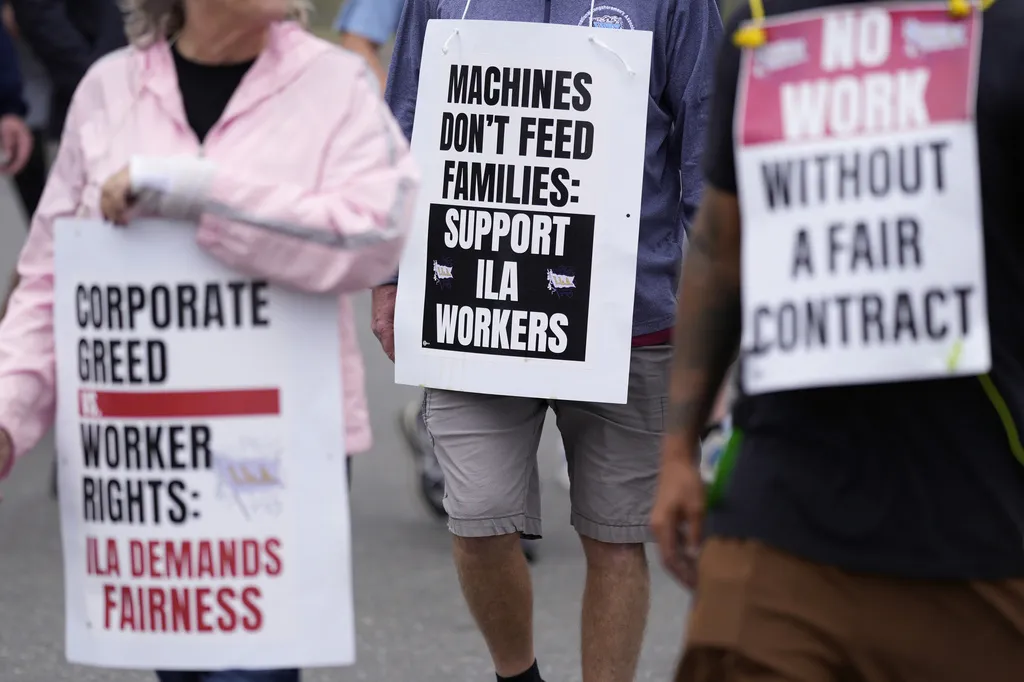Union Leaders' Outdated Methods Threaten Workers and American Economy

The Impact of Union Demands on Workers and the Economy
The International Longshoreman's Association (ILA) is currently demanding outrageous wage increases and a ban on automation, threatening to disrupt America's economy and cost jobs. The ILA's recent protests are a clear echo of the early 19th-Century British Luddites, positioning themselves against industrial modernization while seeking higher pay and job security.
In recent weeks, the ILA has threatened to hold the nation's economy hostage to a strike that promises to shut down major American ports. The union's demands have reached new extremes, including a 77% wage hike and strict anti-automation provisions.
Comparative Offers and Historical Context
ILA president Harrold Daggett rejected an offer that many would perceive as more than generous: a 50% pay increase spread over six years. While most American families would consider such a pay raise significant, Daggett seems driven by a different agenda. Coupled with his lavish lifestyle, the ILA’s leadership showcases a disconnect with everyday workers.
Major ports worldwide are rapidly automating, and the U.S. must not lag behind. Clinging to outdated methods could result in economic injury for all Americans, not just dockworkers.
Political Maneuvering and Future Implications
The ILA has currently paused its strike but remains a political player looming over the future of American ports. Delaying negotiations until after the upcoming election is clearly a tactical decision intended to avoid public discontent. Meanwhile, the United Steelworkers (USW) union continues to resist necessary modern developments in the domestic steel industry, representing another instance of big-labor impasse against progress.
If unions wish to support their members and the wider economy, a shift in tactics is crucial. Their current paths lead towards stagnation, damaging both worker livelihoods and industry viability.
This article was prepared using information from open sources in accordance with the principles of Ethical Policy. The editorial team is not responsible for absolute accuracy, as it relies on data from the sources referenced.